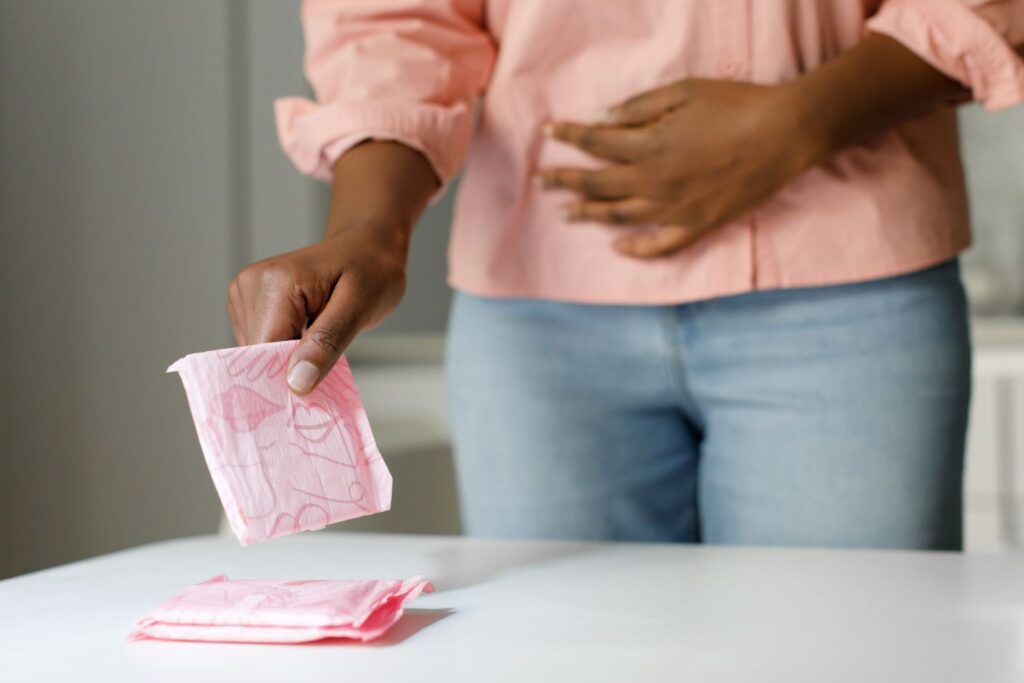It’s 2025, and somehow we’re still acting like periods are a private inconvenience rather than what they really are—a public health issue. This World Health Day, I want to talk about something that affects millions of people, but still doesn’t get nearly enough attention: menstrual health.
This isn’t just about pads and tampons. It’s about dignity. It’s about girls missing school, TAFE or Uni, women missing work. It’s about people having to choose between a box of pads or a loaf of bread. And yes, it’s about mental and physical health too.
You’d think in a country like Australia, one of the wealthiest in the world, basic menstrual care wouldn’t be a problem. But according to the 2024 Bloody Big Survey, 1 in 5 people here are affected by period poverty. That’s over a million individuals who don’t have reliable access to the products they need every single month.
And it’s not just folks living below the poverty line. Students, young workers, people dealing with homelessness or escaping domestic violence—period poverty touches so many corners of society.
State by state, the numbers are sobering. Tasmania and the Northern Territory are hit the hardest, with over 25% of respondents saying they can’t afford period products. Even in places like Victoria and Queensland, the numbers hover around 20%. It’s not just a blip. It’s a crisis.
Here’s what most people don’t realise: period poverty doesn’t just mean a lack of products. It means missed school days (20% of students, to be exact). It means using makeshift materials that aren’t safe. It means risking infections, dealing with chronic stress, and feeling ashamed of something that’s perfectly natural.
And those physical risks? They’re serious. Think skin rashes, infections, even toxic shock syndrome. Add in the mental toll—anxiety, depression, low self-esteem—and it’s clear that this is about a lot more than inconvenience.
When we ignore menstrual health, it doesn’t just hurt individuals—it costs us all. People dealing with untreated infections and mental health struggles end up needing more medical care, which puts pressure on an already overburdened system. It’s a domino effect, and one that could be prevented with something as simple as accessible period products.
Let’s not forget the groups hit hardest. Indigenous communities, refugees, people with disabilities and people living in remote areas often don’t have consistent access to either menstrual care or medical services. That’s how health inequities grow.
There are bright spots. Some state governments provide free period products to schools. Charities like Days for Girls Australia are out there doing incredible work—distributing reusable menstrual kits, educating communities, and making sure that people in crisis aren’t left behind.
But we need more than good intentions. We need policies that make menstrual products freely available in schools, workplaces, and public spaces. We need to talk openly about periods so that the shame and silence stop holding people back. And we need to fund healthcare programs that actually support menstrual health—not just patch things up after the fact.
Here’s the bottom line: menstrual health is public health. If we want a healthier, fairer Australia, we can’t keep pretending periods are just a “women’s issue” or something to be whispered about. They affect education. Employment. Mental health. The economy. And yes—everyone’s future.
This World Health Day, let’s do more than acknowledge it. Let’s talk about it. Loudly, openly, and unapologetically. Because no one should have to suffer in silence over something that happens every month for half the population. It’s time to stop treating menstrual health like an afterthought. It’s time to make it a priority.
Become a Women’s Agenda Foundation member and support our work! We are 100% independent and women-owned. Every day, we cover the news from a women’s perspective, advocating for women’s safety, economic security, health and opportunities. Foundation memberships are currently just $5 a month.
Bonus: you’ll receive our weekly editor’s wrap of the key stories to know every Saturday. Become a member here.


